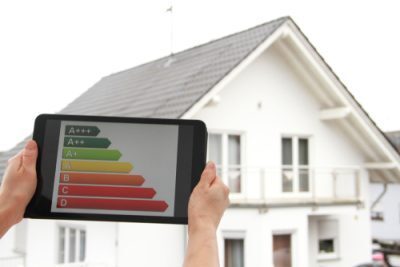
Building Research Establishment EPC Rethink
The Building Research Establishment – which undertakes research, advice, training, testing, certification and standards-setting for the housing sector – is calling for a major rethink of Energy Performance Certificates.
A new BRE report – Energy Performance Certificates: Enabling the Home Energy Transition – is published this week, just as the government is consulting on a new Home Energy Model to replace the Standard Assessment Procedure, currently used to assess and compare energy ratings of residential property.
BRE says EPCs have become central to the way we demonstrate and discuss the energy efficiency of our homes, yet now have a much wider application than when they were first introduced.
They are used in delivering retrofit programmes, regulations, and financing, and with the uptake of low carbon heating technologies such as heat pumps set to increase over the next decade, BRE claims the EPC system will need to evolve.
BRE’s report presents ideas for EPCs to develop and for the processes behind them to become better suited to net zero targets. Proposals include:
– EPC lifespans to be reduced from 10 years to five “to provide more up to date advice and information for homeowners”;
– New criteria to determine an EPC rating, which currently is based on the cost to heat and light a home;
– More detailed data used during the EPC rating process to be used to plan retrofitting of energy efficient measures;
– Strengthened training for Domestic Energy Assessors to “build trust and confidence in the system“ and ensure assessors drive the net zero transition of housing stock;
– Developing a provisional EPC rating for the 40 per cent of housing stock currently without any formal EPC rating;
– Encouraging more people to used EPC certificate advice to improve their homes – just five per cent did so in 2022, BRE says.
“Energy Performance Certificates cover 60 per cent of UK homes and are a key source of information used in planning retrofit programmes and in government policies. But too often home buyers and sellers see the certificates as just a bureaucratic necessity” claims Gillian Charlesworth, chief executive of the Building Research Establishment.
“With targeted reforms, the government can ensure the EPC can really achieve its potential, as a trusted starting point for advice and information on how we can all make our homes better.
“The transition to clean energy in homes is starting to gather pace; the last few months have seen an upsurge in interest in installing heat pumps. Whether it’s clean heat, upgrading insulation, solar panels or other modern energy technologies, reforms to the EPC to make it more up-to-date, accurate and usable will be key to supporting homeowners play their part in the journey to net zero.
“We urge policymakers to read this report and consider its recommendations as a way of driving the decarbonisation of the UK’s domestic building stock.”


If you have any comments, please email the author of this article and click on the link above